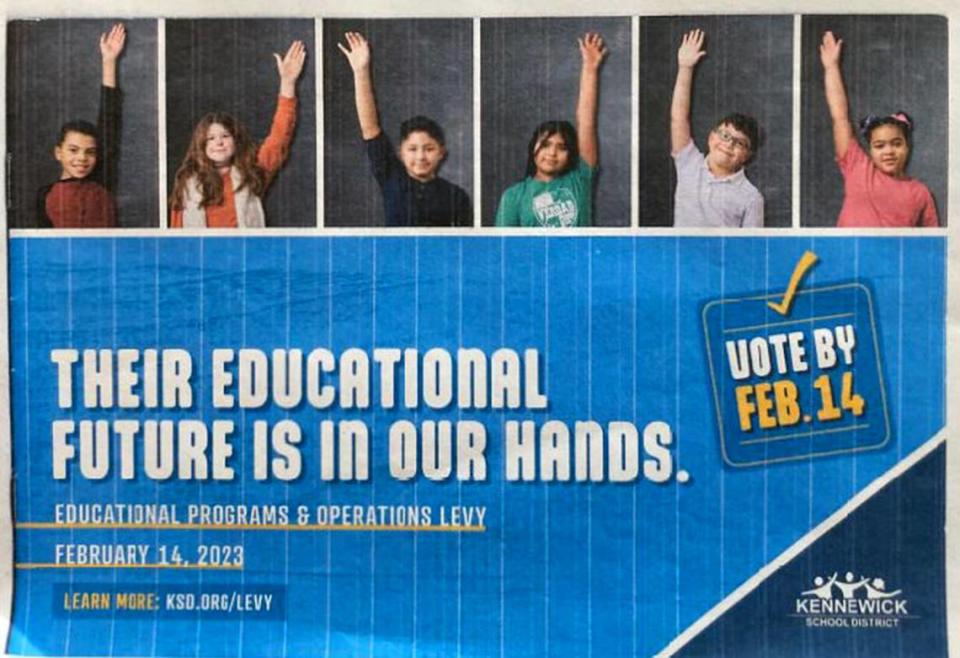Schools say election guidance is ‘outdated and ambiguous.’ Will WA make changes?
When does informative turn into persuasive?
Washington school districts want to know.
After a pair of investigations found that school districts in Kennewick and Burien violated campaign laws to influence local elections, educators are asking the Washington Public Disclosure Commission (PDC) to clarify its guidance around communicating fact-based information.
On Thursday, before the PDC’s four appointed commissioners, school district administrators and representatives from the Washington School Public Relations Association shared their concerns.
“School communicators want to comply with the law, but it is exceedingly difficult to apply guidance that is nearly 20 years old to today’s communications practices,” said Catherine Carbone Rogers, chief communications officer at Highline Public Schools.
“We welcome less-subjective, more-clear guidance and we ask that it reasonably allow us to communicate our students’ needs and the school board’s reason for placing a ballot measure on the ballot before voters,” she added.
Washington state law allows school districts to make objective and fair representations of facts about ballot propositions — specifically levies, which are passed to fund programs, and bonds, which fund new construction — during election season. But it also prohibits the use of taxpayer-funded facilities to promote or oppose such measures.
As communities change how they consume information, and as districts pivot to more frequent and digital methods of communication, especially as a result of the COVID pandemic, administrators say they’re having a tougher time gauging where to draw the line.
PDC Chair Fred Jarrett said it would be worthwhile to review the PDC guidance, even though he feels it’s still sound and can be applied to the way districts work today.
“I don’t think that the rules have really changed from 1972 to today on what is permissible. What has changed is the way that we do communicate, and the frequency and techniques,” Jarrett said.
But Robyn Chastain, Kennewick School District’s executive director of communications and public relations, called the current guidance “outdated and ambiguous.”
“Levies and bonds are crucial funding channels for school districts across our state. In a fast growing area like Kennewick, we have run nine ballot measures over the last 10 years, including educational programs and operations levies, technology levies and capital project bonds,” she told commissioners.
PDC cases opened
The PDC is the Washington agency that interprets and enforces state campaign finance and disclosure laws.
In the past 17 months, 15 complaints have been filed with the PDC against school districts alleging violation of Washington’s laws on prohibiting use of public facilities for proposition support.
Most cases were closed without evidence or with a reminder notice. But both Kennewick School District and Highline Public Schools in Burien were fined $600 in recent months for what appears to be more egregious violations.
On Oct. 28, the PDC opened up a case into a complaint Philip Mattern filed over a mailer he received and he alleged advertised support for an upcoming bond to rebuild two high schools and a middle school within Highline Public Schools’s boundaries.
While PDC compliance officers found the mailer didn’t break state law, they found the district’s other promotional communications included language from students and staff in support of the proposal.

Highline also distributed additional information about voting tips, ballot information and drop box locations in excess of what they would normally give in a non-election year.
On Feb. 23, the PDC opened up a case on the Kennewick School District over similar alleged violations.
PDC investigators found that Kennewick’s communications contained language that promoted passage of the levy in advertisements, mailers, website and on its social media platforms.
Neither district explicitly told voters in published communications to vote “yes” for their proposition.
And district leaders from both say they were unaware they were breaking Washington state law when they published their material.
“If I had had a better, clearer understanding of how the law would be interpreted, I would have applied greater scrutiny to some of those messages,” Carbone Rogers said.
Frequency a factor
The two school districts’ frequency of communication about their respective proposals also came under fire.
Highline published three times as many social media posts about elections in 2022 as it did in 2019. And in the weeks leading up to the vote, roughly 40% of posts were about the bond.
Meanwhile, Kennewick bought 500 radio spots and 1,313 television spots across 11 different stations in the 43 days leading up to the February special election, and it made 19 unique posts, some including videos, about the levy on its social media accounts.
The PDC allows districts to communicate information about a ballot proposition, so long as it is within its “normal and regular” frequency of communications. The agency does not view marketing and sales efforts during campaign elections as “normal and regular,” and it only allows administrators to publish and distribute one district-wide publication.
“Paper fliers and a mailer are not adequate to appropriately inform and educate our community about important district information, including ballot measures,” Chastain said.
John Trumbo, the complainant in the Kennewick case, who also separately serves on the city council, says he was “unofficially informed” Kennewick spent roughly $100,000 — about $43 per vote in support — to get the word out about its levy. The state should not loosen their regulation, he argues.
“KSD’s six-figure expenditure is both shocking and should not be rewarded with a modification of the RCW or guidelines that opens the taxpayers’ purse without their knowledge,” Trumbo said in a statement to commissioners.
Some smaller school districts also struggle with getting information out in multiple languages.
Ed Petersen, director of public relations and communications at the 4,700-student Othello School District, said they serve families who not only speak English and Spanish, but also Latin indigenous languages like Mixtec.
“In my district, in particular, we have no local media. We don’t have television. We don’t have radio. We don’t have a local newspaper anymore,” Petersen said.

